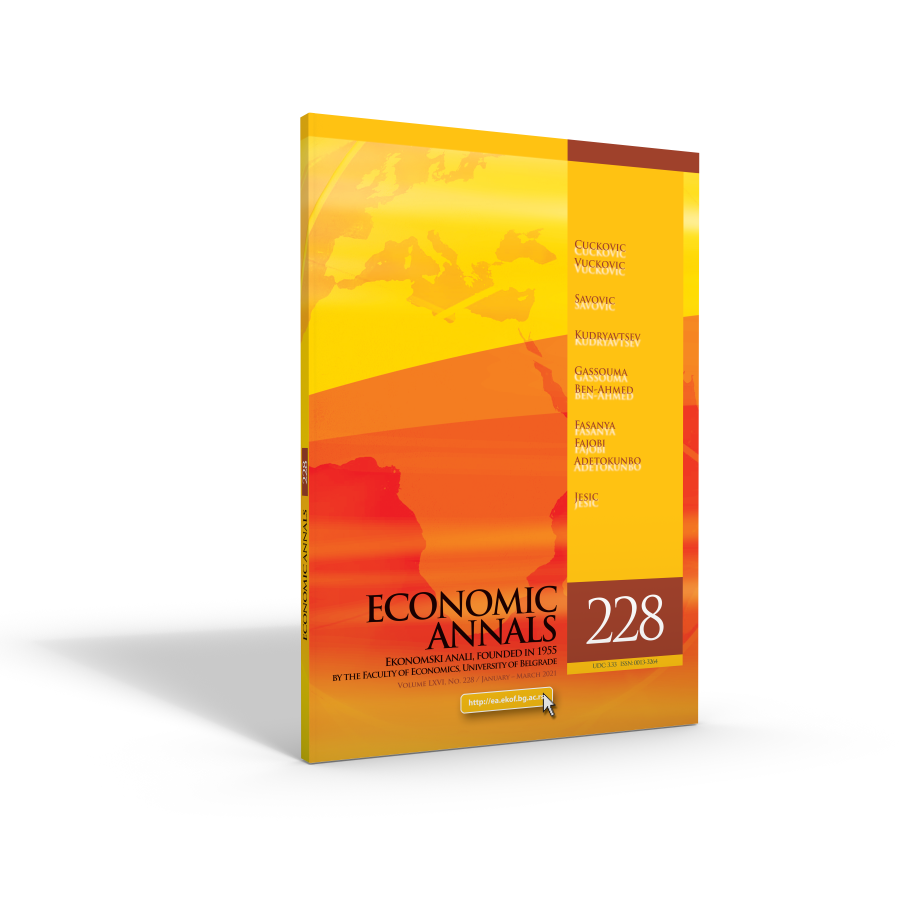ARE FISCAL DEFICITS INFLATIONARY IN NIGERIA? NEW EVIDENCE FROM BOUNDS TESTING TO COINTEGRATION WITH STRUCTURAL BREAKS
##plugins.themes.bootstrap3.article.main##
##plugins.themes.bootstrap3.article.sidebar##
Ismail O. Fasanya
Ayinke Fajobi
Abiodun Adetokunbo
Ayinke Fajobi
Abiodun Adetokunbo
Abstract
In this paper, we model the relationship between fiscal deficit and in-flation for Nigeria using annual data from 1980 to 2016. We employ the linear ARDL approach and account for structural breaks using the Bai and Perron (2003) test that allows for multiple structural changes in regression models. The paper finds that the fiscal deficit is a major determinant of inflation along with other macroeconomic factors considered in the study. However, we observe that it may be necessary to pre-test for structural breaks when modelling the relationship between the fiscal deficit and the price level, as it performs better than when structural events are not consid-ered. The results imply that a fiscal man-agement process that does not encourage increased revenue and reduce fiscal deficits will further worsen the level of inflation in the country.
##plugins.themes.bootstrap3.article.details##
Keywords
fiscal deficit, price level, ARDL cointegration, structural breaks
JEL Classification
C32, E31, E62
Issue
Section
Articles
How to Cite
O. Fasanya, I., Fajobi, A., & Adetokunbo, A. (2021). ARE FISCAL DEFICITS INFLATIONARY IN NIGERIA? NEW EVIDENCE FROM BOUNDS TESTING TO COINTEGRATION WITH STRUCTURAL BREAKS. Economic Annals, 66(228), 123-148. https://doi.org/10.2298/EKA2128123F
How to Cite
O. Fasanya, I., Fajobi, A., & Adetokunbo, A. (2021). ARE FISCAL DEFICITS INFLATIONARY IN NIGERIA? NEW EVIDENCE FROM BOUNDS TESTING TO COINTEGRATION WITH STRUCTURAL BREAKS. Economic Annals, 66(228), 123-148. https://doi.org/10.2298/EKA2128123F

